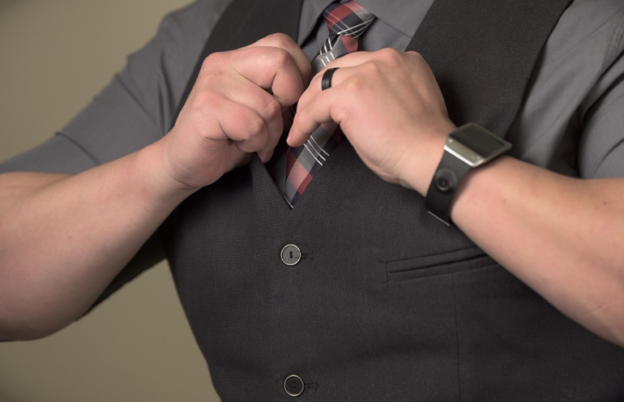When family members or loved ones abuse drugs, it affects everyone they know. Their addiction can have emotional, psychological, financial, and environmental effects on the people who care about them most. The challenge with addiction is that the addict is not the only one impacted by this disease. Friends and family members of addicts can have difficulty with the addict’s behavior, financial problems, legal problems and the daily struggle of supporting a loved one.
When considering how to deal with an addict and how to deal with addiction, it’s important to consider the nature of addiction. When addictions strike, those family members and friends need to take steps to get the person they love into treatment programs that can help. These family members and friends also need to take care of their own health, so they can provide the love and support that addicted people need in order to heal. Today we take a look at tips that family and friends can reference to support an addicted family member or friend.
Educate yourself about addiction.
We all know knowledge is power, therefore the more you learn, the calmer your state of mind will be. Family members of addicts should investigate and learn about the substance that you believe your loved one is using or may be addicted to. Opinions and facts are different. Stick to the facts and not the opinions of well-meaning friends who could cloud your head with misinformation. The more you know about your loved one’s addiction, its characteristics and traits, the more confident you can be in a conversation regarding their specific situation. You won’t be caught off guard or caught up with another’s opinion if you’ve already done your own research.
Consider Attending an Open Alcoholics Anonymous Meeting
This can be a profound and eye-opening experience, as these meetings are usually “speaker meetings” where one individual talks for the bulk of the meeting and traces their life from dysfunction and destruction to recovery. You can hear firsthand the same plight that your loved one may be experiencing from someone else, affording you some distance and objectivity.Education can also help family members of addicts to escape the blame game. Rather than believing that the person’s addiction stems from weakness, willfulness, or stubbornness, they might learn how addictions stem from changes in brain chemistry and electrical impulse alterations. That data might help families to let go of their anger, so they can focus on healing.
There are many resources for finding this information: SAMHSA.gov (Substance Abuse Mental Health Services Administration) has all types of educational and informational resources. The public library and the internet have an enormous amount of information for education, groups, support, treatment, etc.
Understand the Difference Between Support and Enabling
We all want to help the people we care about. When you see a friend or loved one struggling with addiction, you don’t see an addict; you see someone who needs help. You want to be there, to help her through a hard time. Unfortunately, the wrong kind of help can make the situation worse. How do you know whether you are supporting someone or just enabling the addiction? Enabling a family member’s addiction comes in many forms – some of which you may not think are enabling, but are. It is important to recognize the behaviors and actions you and your family are carrying out that allow your drug-addicted loved one to remain in this destructive state.
An enabler takes away any motivation for the addict to take responsibility for his or her actions. Without that motivation, there is little reason for the addict to want to change. In essence, enablers are helping addicts dig themselves deeper into trouble.
If you’re wondering whether or not you might be an enabler, here are some questions to ponder:
- Do you ever lie to cover for someone else’s mistakes?
- Do you consistently assign blame for problems to other people rather than the one who is really responsible?
- Do you continue to offer help when it is never appreciated or acknowledged?
- Do you ignore unacceptable behavior or fear that not doing something will lead to violence or the person leaving you?
Establishing Boundaries for Family Members of Addicts
Boundaries are key to creating healthy relationships; even when your loved one isn’t healthy. When your boundaries are weak – or don’t exist at all – you compromise what makes you, you. Weak boundaries allow you to lose yourself, your freedom, your personal space. Weak boundaries when a loved one is addicted, mean you will likely be lied to, cheated on, and stolen from. When you set boundaries with an addicted loved one, you increase the chances that he or she will seek help.
- How does someone define their own boundaries? Think about what you will allow in your life and what you won’t put up with. Figuring out the types of behavior from others that are negatively impacting you is a good place to start.
- How do I establish boundaries? Setting up boundaries may require some uncomfortable conversations but being upfront and honest is key. Let the person know that for the sake of your own mental health and emotional health, there are certain things you cannot continue to allow. Do this in a way that is as polite and concise as possible.
- How do I enforce my boundaries? After a boundary has been established it is important that it is maintained, otherwise, it will become meaningless. For example, if you establish a rule that you don’t want a loved one to get high around you, but later allow them to do so, then what you say will not be taken seriously.
Family Members of Addicts – Care for Yourself Too
Acknowledge you are in your own recovery process and deserve support too. Addiction often takes a heavy financial, emotional and physical toll on families and their relationships. Self care and recognizing all family members’ needs should be an important part of any family recovery plan. Maintaining a balanced focus helps model this same healthy outlook for all family members.
Focusing on your own life is the most important thing you can do to assist the addict. If you are stressed out due to their issues, in addition to your own, it creates resentment and strain. It makes it difficult to want to help someone who has created so much difficulty in your life. By taking care of yourself through exercising, getting plenty of sleep, socializing and getting support, you may be better able to help your loved one when they are ready to accept the help.
Things to Avoid
Dont: Assume that your family member going to rehab means that everything has been resolved. He or she will need your love, guidance, and support during rehab and afterward as he establishes a new, sober life for himself. Help him or her move back into life in a step-by-step manner, maintaining your support.
Dont: Expect that the person will immediately take off for rehab when you first approach him. You may have to intervene. Either find a professional interventionist who has successfully gotten many people to rehab or get together with all your family and the addict’s close friends and cut off all means of escape. If some have been providing money or shelter, they must agree that rehab is the only option. There must be no way out other than going to rehab.












